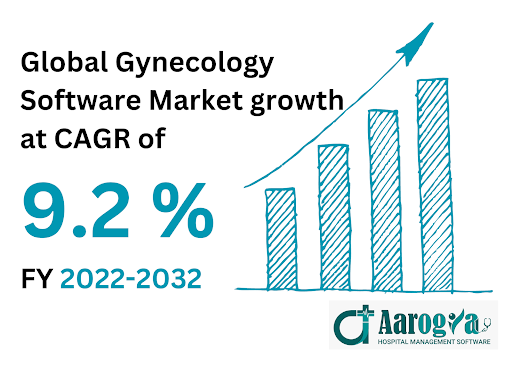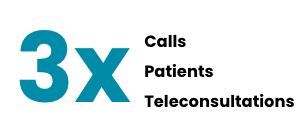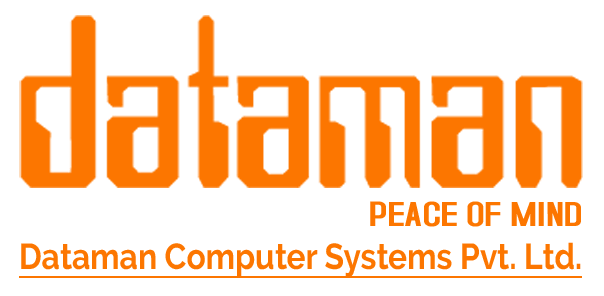- +91 9511117684
- shweta@dataman.in

Table of Contents
Post Views: 14,427
In the last few decades, we are getting more and more concerned and aware about women’s health. Many women are awakening to the fact that a woman’s body requires special care and attention to specific needs. Women’s bodies are susceptible to frequent hormonal changes due to the menstrual cycle and pregnancy. Every phase requires aligned care and knowledge.
On top of that, the ever stressful life phases, sedentary lifestyle and several societal & environmental factors have made women more prone to recurrent physical discomforts requiring highly needed visits to a Gynecologist.
Therefore, with an ever increasing number of women visiting, Gynaecology department has become one of the most important and sought after hospital departments requiring technological support. Since the data and information handled by this department is sensitive and requires patient’s trust, a gynecologist’s clinic needs Gynaecology Software tailored to meet required specific needs.
The significance and value provided by Gynaecology Software can be seen in the research study report, which indicated that the Global Gynecology Software Market is projected to experience strong growth at a CAGR of 9.2% from 2022-2032 for various factors such as increasing adoption of digital technology in healthcare propelled by several government initiatives, rise in chronic gynecological diseases and so forth.

What is Gynaecology Software?
Gynecology Software has emerged as a powerful tool, streamlining processes, enhancing patient care, providing data security and contributing to improved outcomes. This software solution is tailored to meet the unique needs of gynecologists, offering a comprehensive and integrated approach to managing patient information, administrative tasks, and clinical decision-making.
There are certain special features along with general ones that are specifically required by Gynaecologists to keep detailed medical records of their patients. Some of which we are briefly discussing here.
What are the advantages & features of Gynaecology Software?
1. Streamlining Administrative Tasks: One of the primary advantages of gynecology software is its ability to streamline administrative tasks. From appointment scheduling to billing and insurance management, these software solutions automate routine processes, allowing healthcare providers to focus more on patient care. With features like electronic health records (EHR) and practice management modules, gynecologists can efficiently manage patient information, reducing paperwork and minimizing errors.
A 2023 study by HIMSS Analytics found that physicians using EHRs spend 22% less time on administrative tasks compared to those using paper charts.
2. Electronic Health Records (EHR): Gynecology software incorporates electronic health records, a digital version of a patient’s paper chart. EHRs provide a comprehensive overview of a patient’s medical history, including past illnesses, surgeries, medications, and reproductive health data. This centralized information enables healthcare providers to make well-informed decisions, coordinate care, and improve overall patient outcomes. Additionally, EHRs enhance communication between different healthcare providers, promoting a more collaborative approach to women’s healthcare.
3. Telehealth Integration: In response to the global shift towards remote healthcare, many gynecology software platforms now offer telehealth capabilities. This feature allows gynecologists to conduct virtual consultations, enabling patients to receive medical advice and discuss concerns from the comfort of their homes. Telehealth not only improves accessibility to healthcare but also facilitates timely interventions, particularly in cases where in-person visits may be challenging.
As per a report “Reinventing Healthcare Delivery With Telemedicine” by Telemedicine Society of India (TSI) and Practo, there has been a 3x increase in the number of people using online consultation in India.

4. Patient Portal Access: Gynecology software often includes patient portals, empowering individuals to actively engage in their healthcare journey. Through these portals, patients can access their medical records, schedule appointments, receive test results, and communicate with their healthcare providers. This transparency fosters a more collaborative patient-physician relationship, enhancing overall patient satisfaction and adherence to treatment plans.
A survey by Zocdoc found that 82% of patients consider online appointment scheduling a valuable feature when choosing a healthcare provider.
5. Clinical Decision Support: Gynecologists face complex and nuanced decision-making in their practice. Gynecology software incorporates clinical decision support systems that leverage algorithms and medical databases to provide evidence-based recommendations. This assists healthcare providers in diagnosing conditions, selecting appropriate treatments, and staying updated on the latest medical guidelines, ultimately contributing to better patient outcomes.
6. Reproductive Health Tracking: For women trying to conceive or manage reproductive health concerns, gynecology software often includes features for tracking menstrual cycles, ovulation, and fertility. These tools empower both patients and healthcare providers with valuable insights into menstrual and reproductive patterns, aiding in family planning, fertility treatments, and addressing underlying issues related to reproductive health.
7. Data Security and Compliance: The sensitive nature of gynecological information emphasizes the importance of robust security measures within gynecology software. These solutions adhere to strict data security and privacy standards, ensuring the confidentiality and integrity of patient information. Compliance with regulations such as the Health Insurance Portability and Accountability Act (HIPAA) is integral to instilling trust in both patients and healthcare providers.
Also Read: Top 5 Hospital Management Software in India
Conclusion:
Gynecology Software has emerged as a pivotal component in advancing women’s healthcare, offering a range of features that enhance efficiency, patient engagement, and clinical decision-making. As technology continues to evolve, gynecologists and healthcare organizations must embrace these digital tools to stay at the forefront of providing comprehensive and patient-centric care.
This digital companion in gynecology ensures that the journey towards women’s wellness is not just efficient but also empathetic – a perfect blend of science and compassion in the service of women’s health.
0

